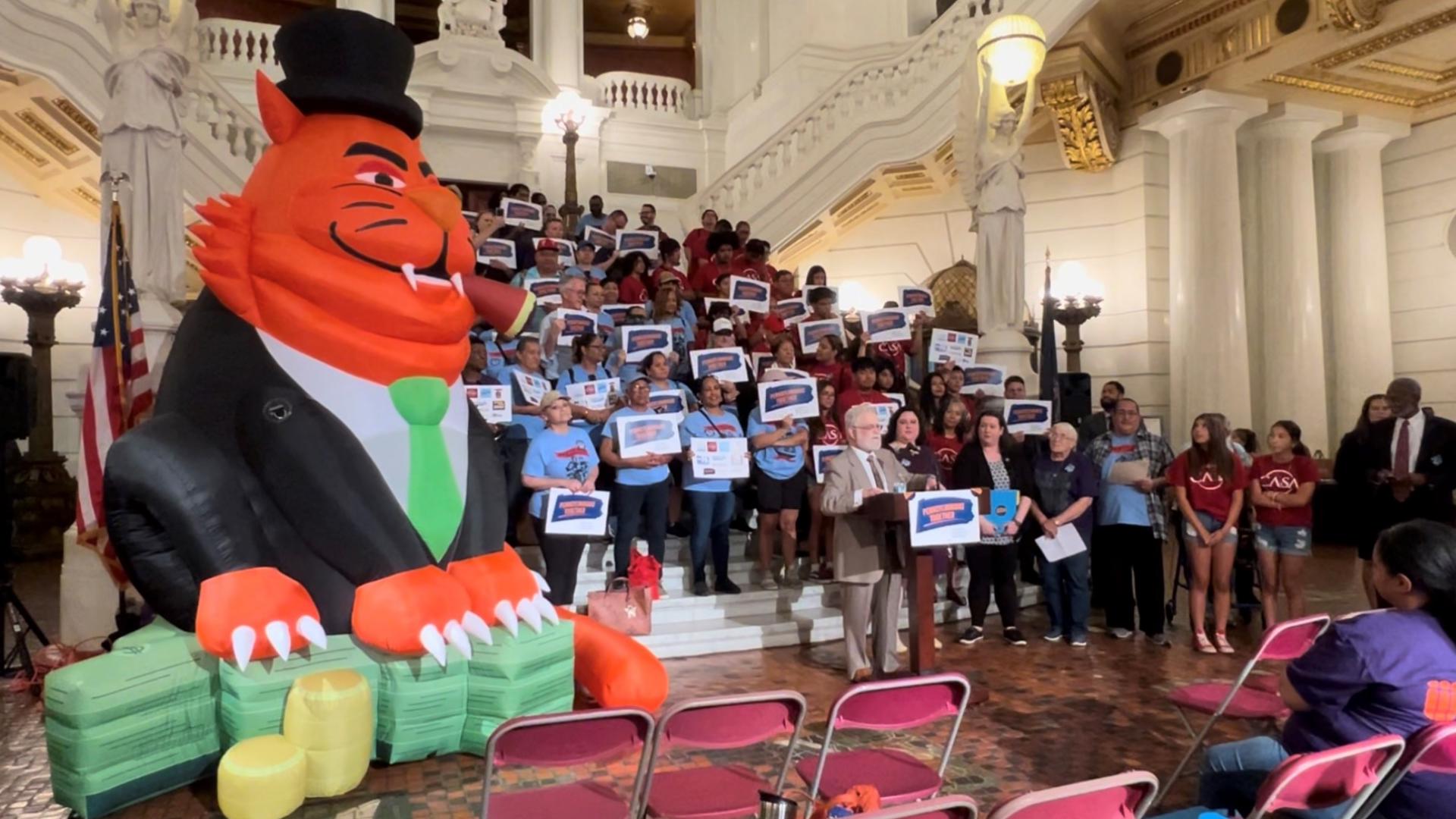HARRISBURG, Pa. — With just weeks to go until the state's budget is due, Republicans and Democrats are laying out their priorities, hoping to avoid a repeat of last year.
As the June 30 budget deadline looms over the State Capitol Building in Harrisburg, Republicans in the general assembly are laying out their plans for tax breaks.
"Senate Republicans, with a veto-proof vote in that chamber, which included half of the Democratic Caucus, voted to cut taxes for all Pennsylvanians," said State Rep. Bryan Cutler, House minority leader.
Cutler criticized Democrats' plans to spend some of the state's $14 billion surplus.
"Creating new programs that will then create recurring costs that will need to be sustained well after the surplus and even potentially the rainy day fund are exhausted, by some estimates within the next two to five years," Cutler said.
Meanwhile, a group of voters filled the rotunda, asking the state to use their tax dollars wisely.
Members of SEIU, CASA and Action Together NEPA joined the Pennsylvania Policy Center in asking lawmakers to back affordable housing, minimum wage increases and education.
"The general assembly must enact a seven-year plan to meet our constitutional and moral obligation to fully and fairly fund our schools," said Marc Stier, executive director of the Pennsylvania Policy Center.
Governor Shapiro proposed a $1.1 billion basic education funding increase in his budget proposal earlier this year.
"The education funding plan the governor has put forth is something that is very important to our caucus members, the Senate Democrats," said State Sen. Jay Costa, Senate minority leader. We believe it's going to be a big part of the conversation. At the end of the day, it could very well be a sticking point."
Costa said both sides have to be willing to come to the table and compromise to benefit the state.
"A lot of work needs to be done between now and then, but I'm confident that the parties will come together," Costa said. "In fact, we've already started some of those preliminary conversations to be able to set the stage for real discussions as we get further into June."
Lawmakers are hopeful they'll reach an agreement before the June 30 deadline and avoid another long delay in 2024.

